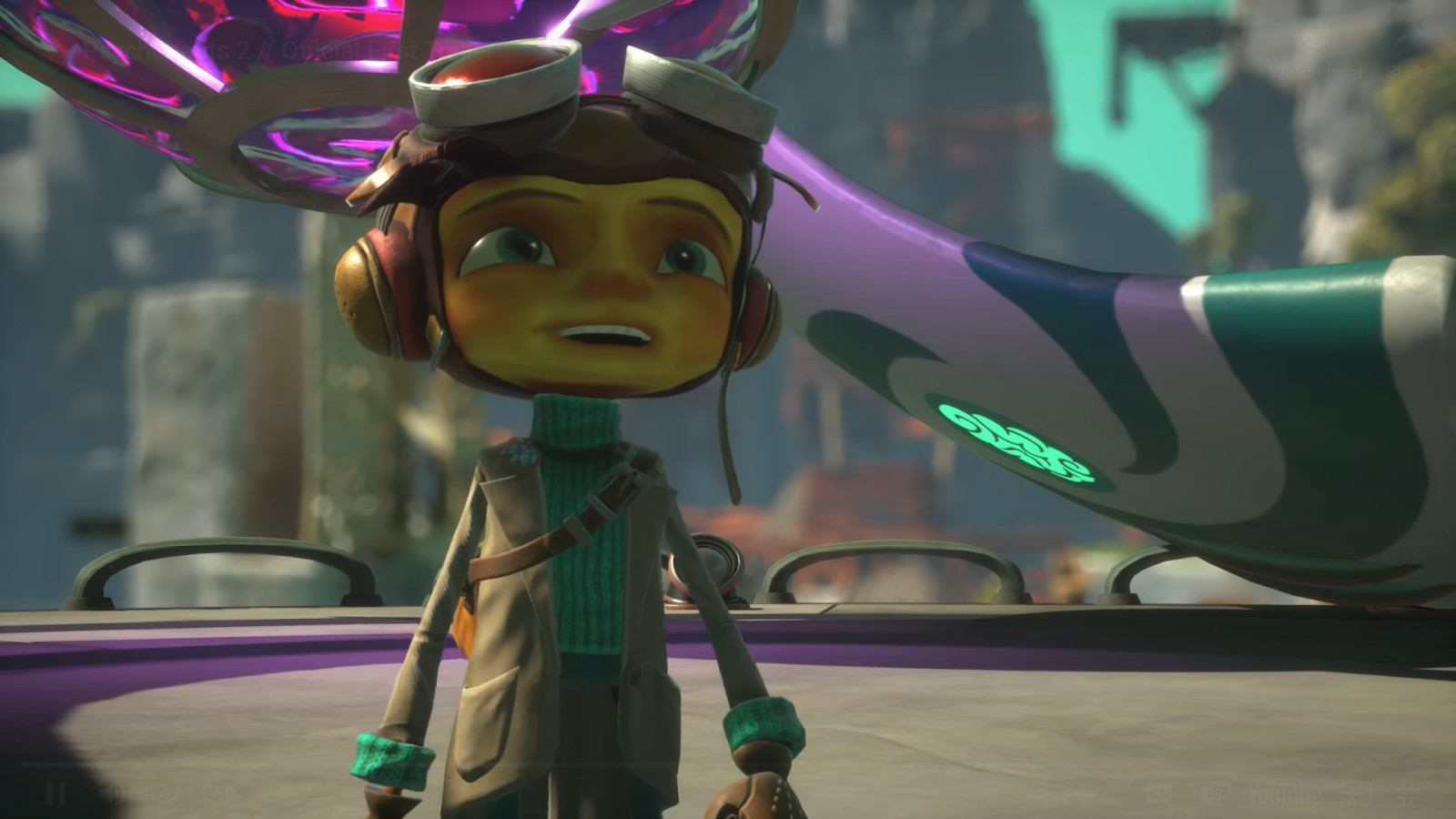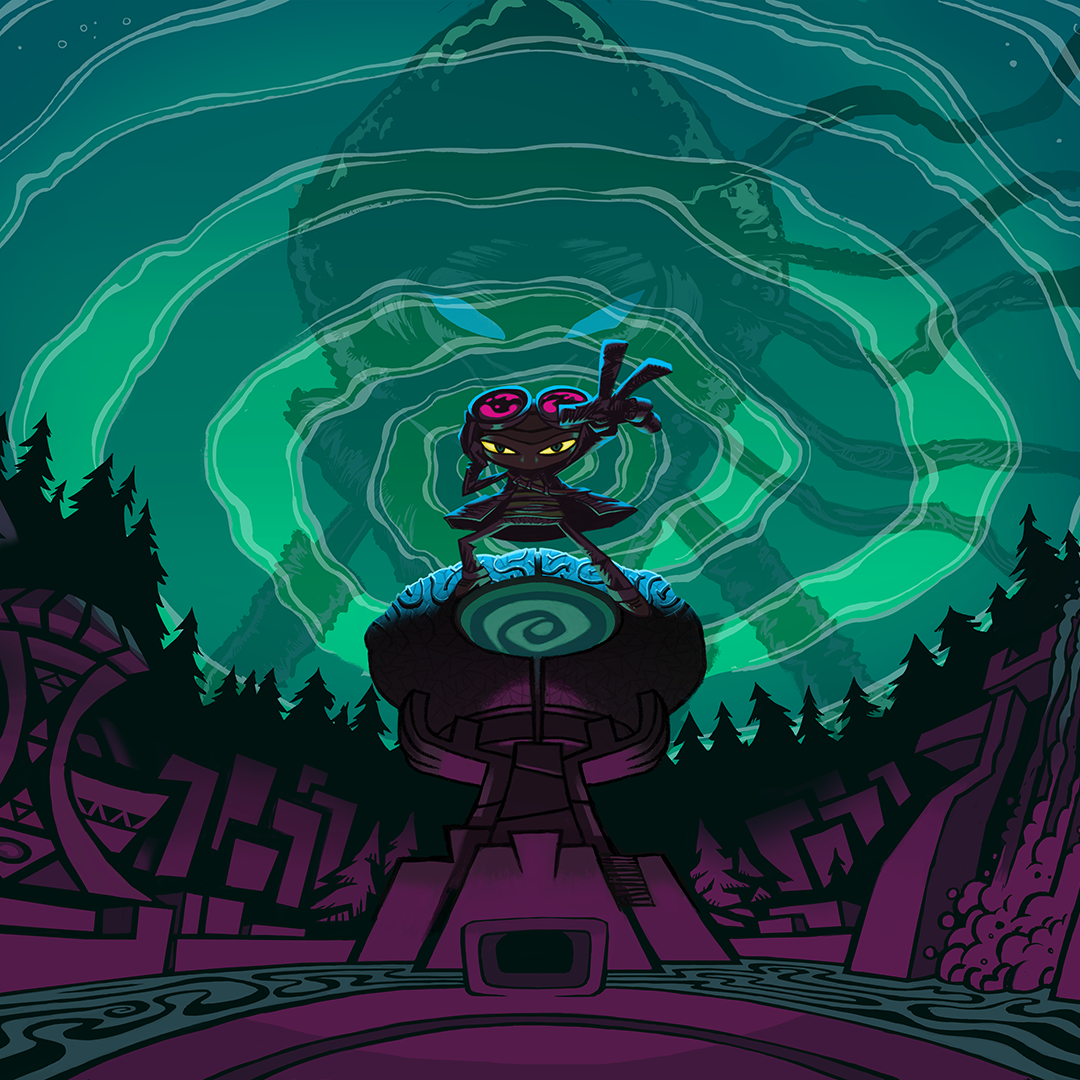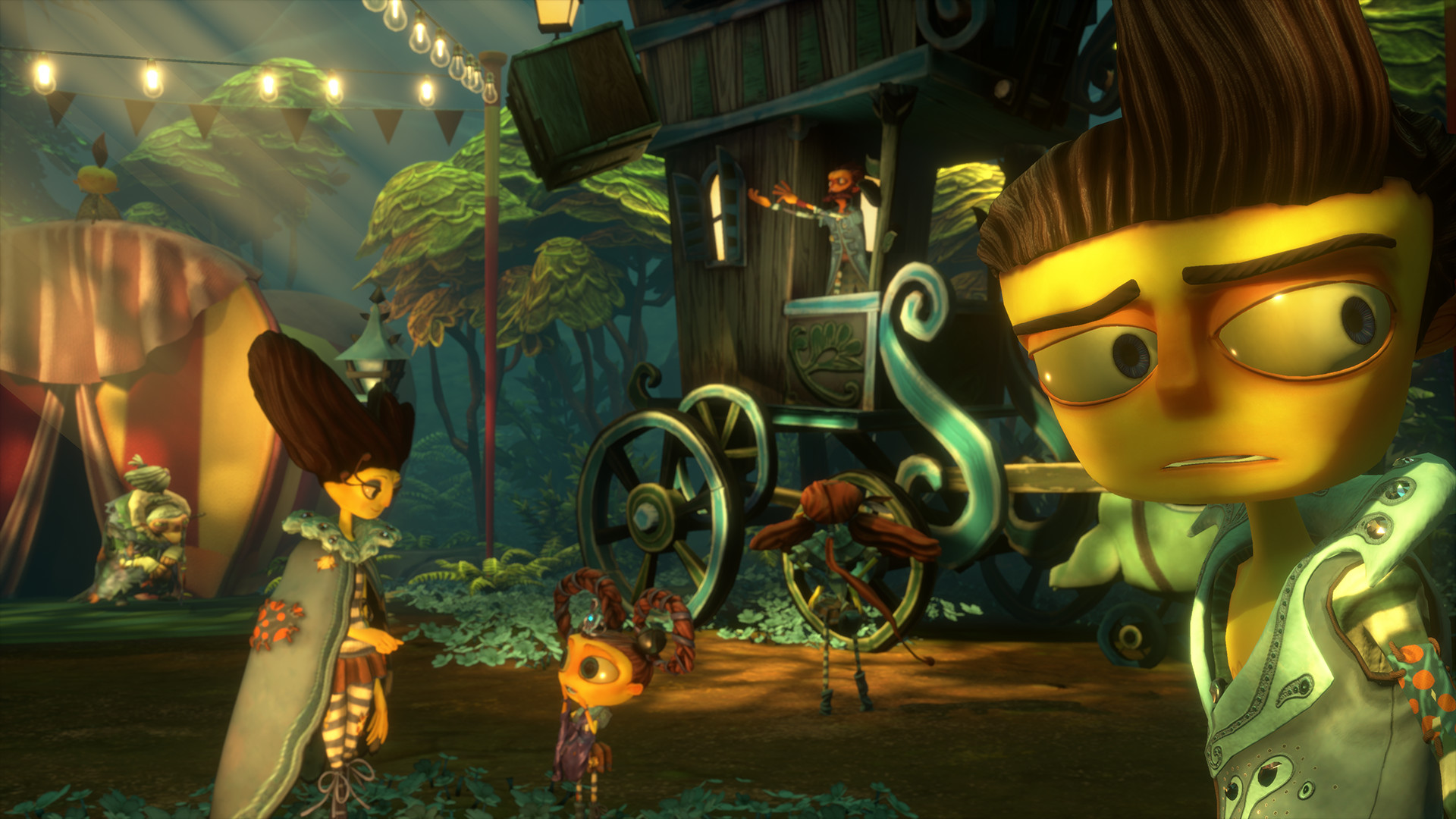Psychonauts
- Psychonauts
- Psychonauts Wiki
- Psychonauts In The Rhombus Of Ruin
- Download Psychonauts For Pc
- Psychonauts Wiki
- Psychonauts Walkthrough
- Psychonauts 2 Release Date
Psychonauts 2 Delayed to 2021, Gets Musical Trailer Featuring Jack Black The wait for Double Fine's psychic-powered platformer may sting, but the studio will comfort you with a song. By Joe Juba on Jul 23, 2020 at 12:50 PM. This group was created to connect explorers of the mind, consciousness and reality who are interested in sharing their experiences. This is not for recreational users, nor is it a marketplace to buy o. Summary: Any mind, any time. For years, the PSYCHONAUTS have deployed their psychically-armed operatives all over the world, but this time trouble is brewing right in their own backyard.
Psychonauts Table of Contents Walkthrough
Table of Contents
Psychonauts
| Psychonauts | |
|---|---|
| Developer(s) | Double Fine Productions PlayStation 2 Budcat Creations |
| Publisher(s) | Majesco Entertainment |
| Distributor(s) | Steam, GameTap, Xbox Originals |
| Designer(s) | Tim Schafer |
| Latest version | 1.04 |
| Release date(s) | February 10, 2006 Windows April 26, 2005 February 10, 2006 Steam October 11, 2006 Xbox Originals December 4, 2007 |
| Genre(s) | Adventure, Platform |
| System(s) | Xbox, Windows, PlayStation 2, Xbox 360, Mac OS, Linux |
| Modes | Single player |
| Rating(s) | USK: Ages 12+ OFLC: Mature |
| PCGamingWiki | |
| Neoseeker Related Pages | |
| Twitch | Psychonauts Channel |
| Search | |
| Search | |
Psychonauts is a platform video game created by Tim Schafer, developed by Double Fine Productions and published by Majesco. The game was released on April 19, 2005 for the Xbox, April 26 for Windows and the following June for PlayStation 2. It has also been released on Steam, as an 'Xbox Original' through Xbox Live Marketplace, and as a free playable title on the GameTap basic subscription service.

While the game suffered from poor sales and publisher Majesco suffered financial difficulties relating to Psychonauts and other titles in its catalogue, Psychonauts received strong critic praise and is widely considered to be one of the best platform games.
Continue to:
Controls →
Walkthrough →
Psychonauts is based on the exploits of Raz, a young boy gifted with psychic abilities who runs away from the circus to try to sneak into a summer camp for those with similar powers in order to become a 'Psychonaut'. He finds that there is a sinister plot occurring at the camp that only he can stop from happening. The game is centered on the widely strange and imaginative minds of various characters that Raz enters as a Psychonaut-in-training in order to help them overcome their fears or memories of their past, so as to gain their help and progress in the game. Raz gains use of several psychic abilities during the game that are used for both attacking foes and solving puzzles.
Table of Contents

Psychonautics (from the Ancient Greekψυχήpsychē 'soul, spirit, mind' and ναύτηςnaútēs 'sailor, navigator')[1] refers both to a methodology for describing and explaining the subjective effects of altered states of consciousness, especially an important subgroup called holotropic states, including those induced by meditation or mind-altering substances, and to a research cabal in which the researcher voluntarily immerses themselves into an altered mental state in order to explore the accompanying experiences.[2]
The term has been applied diversely, to cover all activities by which altered states are induced and utilized for spiritual purposes or the exploration of the human condition, including shamanism, lamas of the TibetanBuddhist tradition,[3]sensory deprivation,[1] and archaic/modern drug users who use entheogenic substances in order to gain deeper insights and spiritual experiences.[4] A person who uses altered states for such exploration is known as a psychonaut.
Etymology and categorization[edit]
The term psychonautics derives from the prior term psychonaut, usually attributed to German author Ernst Jünger who used the term in describing Arthur Heffter in his 1970 essay on his own extensive drug experiences Annäherungen: Drogen und Rausch (literally: 'Approaches: Drugs and Inebriation').[1][5] In this essay, Jünger draws many parallels between drug experience and physical exploration—for example, the danger of encountering hidden 'reefs.'
Peter J. Carroll made Psychonaut the title of a 1982 book on the experimental use of meditation, ritual and drugs in the experimental exploration of consciousness and of psychic phenomena, or 'chaos magic'.[6] The term's first published use in a scholarly context is attributed to ethnobotanistJonathan Ott, in 2001.[7]
Definition and usage[edit]
Clinical psychiatrist Jan Dirk Blom describes psychonautics as denoting 'the exploration of the psyche by means of techniques such as lucid dreaming, brainwave entrainment, sensory deprivation, and the use of hallucinogenics or entheogens', and a psychonaut as one who 'seeks to investigate their mind using intentionally induced altered states of consciousness' for spiritual, scientific, or research purposes.[1]
Psychologist Dr. Elliot Cohen of Leeds Beckett University and the UK Institute of Psychosomanautics defines psychonautics as 'the means to study and explore consciousness (including the unconscious) and altered states of consciousness; it rests on the realization that to study consciousness is to transform it.' He associates it with a long tradition of historical cultures worldwide.[8] Leeds Beckett University offers a module in Psychonautics[9][10] and may be the only university in the UK to do so.[citation needed]
American Buddhist writer Robert Thurman depicts the Tibetan Buddhistmaster as a psychonaut, stating that 'Tibetan lamas could be called psychonauts, since they journey across the frontiers of death into the in-between realm.'[3]
Categorization[edit]
The aims and methods of psychonautics, when state-altering substances are involved, is commonly distinguished from recreational drug use by research sources.[1] Psychonautics as a means of exploration need not involve drugs, and may take place in a religious context with an established history. Cohen considers psychonautics closer in association to wisdom traditions and other transpersonal and integral movements.[8]
However, there is considerable overlap with modern drug use and due to its modern close association with psychedelics and other drugs, it is also studied in the context of drug abuse from a perspective of addiction,[2] the drug abuse market and online psychology,[11] and studies into existing and emerging drugs within toxicology.[4]

Methods[edit]
Psychonauts Wiki
- Hallucinogens,[1]oneirogens, and especially psychedelics such as peyote, psilocybin mushrooms, LSD and DMT, but also dissociatives and atypical psychedelics such as ketamine, dextromethorphan, Tabernanthe iboga, Amanita muscaria and Salvia divinorum
- Icaros, which are the songs (i.e. something verbal that is ordinarily perceived as an auditory sensation) the Ayahuasceros sing to induce pictorial representations, rich tapestries of colors and patterns that are visually seen by the listener. (See: synesthesia) The ayahuasca ingredient, harmine, was once known as telepathine because of this group-facilitated activity of singing icaros and the shared perception it cultivates. A shaman who is one of the Ayahuascero people is expected to memorize as many icaros as they can.
- Disruption of psychological and physiological processes required for usual mental states - sleep deprivation, fasting, sensory deprivation,[1]oxygen deprivation/smoke inhalation, holotropic breathwork
- Ritual, both as a means of inducing an altered state, and also for practical purposes of grounding and of obtaining suitable focus and intention
- Dreaming, in particular lucid dreaming[1] in which the person retains a degree of volition and awareness, and dream journals
- Hypnosis[1]
- Meditation[1]
- Meditative or trance inducing dance, like Sufi whirling can also be used to induce altered state of consciousness
- Prayer[1]
- Biofeedback and other devices that change neural activity in the brain (brainwave entrainment)[1] by means of light, sound, or electrical impulses, including: mind machines, dreamachines, binaural beats, and cranial electrotherapy stimulation
- Guided Imagery and Music (GIM) refers to all forms of music-imaging in an expanded state of consciousness, including not only the specific individual and group forms that music therapist and researcher Helen Bonny developed, but also all variations and modifications in those forms created by her followers.
These may be used in combination; for example, traditions such as shamanism may combine ritual, fasting, and hallucinogenic substances.

Works and notable figures[edit]
Psychonauts In The Rhombus Of Ruin

Download Psychonauts For Pc
One of the best known psychonautical works is Aldous Huxley's The Doors of Perception.[13][14][15][16] In addition to Ernst Jünger, who coined the term, the American physician, neuroscientist, psychoanalyst, philosopher, writer and inventor John C. Lilly is another well-known psychonaut.[17] Lilly was interested in the nature of consciousness and, amongst other techniques, he used isolation tanks in his research.[18]
Psychonauts Wiki
Philosophical- and Science-fiction author Philip K. Dick has also been described as a psychonaut for several of his works such as The Three Stigmata of Palmer Eldritch.[14] Another influential psychonaut is the psychologist and writer Timothy Leary.[15] Leary is known for controversial talks and research on the subject; he wrote several books including The Psychedelic Experience. Another widely known psychonaut is the American philosopher, ethnobotanist, lecturer, and author Terence McKenna.[19][20] McKenna spoke and wrote about subjects including psychedelic drugs, plant-based entheogens, shamanism, metaphysics, alchemy, language, culture, technology, and the theoretical origins of human consciousness.
See also[edit]
References[edit]
- ^ abcdefghijklBlom, Jan Dirk (2009). A Dictionary of Hallucinations. Springer. p. 434. ISBN978-1-4419-1222-0. Retrieved 5 March 2010.
- ^ abNewcombe, Russell (2008). 'Ketamine Case Study: The Phenomenology of a Ketamine Experience'. Addiction Research & Theory. 16 (3): 209–215. doi:10.1080/16066350801983707. S2CID143462683.
- ^ abAs noted by Flores, Ralph (2008). Buddhist scriptures as literature: sacred rhetoric and the uses of theory. ISBN978-0-7914-7339-9. Retrieved 5 March 2010.
- ^ abvan Riel (2007). 'New Drugs of Abuse'. Clinical Toxicology. 45 (4): 372–3. doi:10.1080/15563650701284894. S2CID218860546. Retrieved 5 March 2010.[permanent dead link]
- ^Jünger. 'Psychonauten'. Annaherungen: Drogen und Rausch. p. 430. Cited in Taylor; et al. (2005). The Encyclopedia of Religion and Nature. Thoemmes Continuum. p. 1312. ISBN9781843711384. Retrieved 5 March 2010.
- ^Carroll, Peter J. (April 1987). Liber Null. (1978) and Psychonaut. (1982) (published in one volume in 1987). ISBN0-87728-639-6.
- ^Ott, Jonathan (2001). 'Pharmanopo-Psychonautics: Human Intranasal, Sublingual, Intrarectal, Pulmonary and Oral Pharmacology of Bufotenine'. Journal of Psychoactive Drugs. 33 (3): 273–282. doi:10.1080/02791072.2001.10400574. PMID11718320. S2CID5877023. Archived from the original on 2 March 2012. Retrieved 5 March 2010. Cited by Blom, Jan Dirk (2009). A Dictionary of Hallucinations. Springer. p. 434. ISBN978-1-4419-1222-0. Retrieved 5 March 2010.
- ^ abUK Institute of Psychonautics and Somanautics pageArchived 10 November 2010 at the Wayback Machine at his 'Academy for Transpersonal Studies'. Archived from the original on 23 September 2010. Retrieved 10 March 2010.
- ^'Course Specification - BA (Hons) Psychology and Society'(PDF). Leeds Beckett University. Leeds Beckett University. 2017–18. Retrieved 11 September 2020.
- ^'Elliot Cohen'. Staff Directory. Leeds Beckett University. Retrieved 11 September 2020.
- ^Schifano, Fabrizio; Leoni, Mauro; Martinotti, Giovanni; Rawaf, Salman; Rovetto, Francesco (August 2003). 'Importance of Cyberspace for the Assessment of the Drug Abuse Market: Preliminary Results from the Psychonaut 2002 Project'. CyberPsychology & Behavior. 6 (4): 405–410. doi:10.1089/109493103322278790. PMID14511453.
- ^Bigwood, Jeremy; Stafford, Peter J. (1992). Psychedelics encyclopedia. Berkeley, CA: Ronin Pub. pp. 118–9. ISBN0-914171-51-8.
- ^Dunne, Carey (30 July 2013). 'See The Contest-Winning Cover For 'Brave New World''. Retrieved 25 May 2015.
- ^ abDoyle, Richard M. (2011). Darwin's Pharmacy: Sex, Plants, and the Evolution of the Noösphere. University of Washington Press. ISBN978-0295990958.
- ^ abCarpenter, Dan (2006). A Psychonaut's Guide to the Invisible Landscape: The Topography of the Psychedelic Experience. Park Street Press. ISBN978-1594770906.
- ^Jordison, Sam (26 January 2012). 'The Doors of Perception: What did Huxley see in mescaline?'. The Guardian. Retrieved 25 May 2015.
- ^Donaldson, Brian (16 January 2015). 'Comedy review: Robin Ince, Edinburgh'. The Scotsman. Retrieved 25 May 2015.
- ^Lilly, John C. (1956). 'Mental Effects of Reduction of Ordinary Levels of Physical Stimuli on Intact, Healthy Persons'(PDF). Psychiatric Research Reports. 5. pp. 1–9.
- ^Richards, Chris (31 March 2014). 'Sturgill Simpson: A country voice of, and out of, this world'. Retrieved 16 June 2015.
- ^Harms, Shane (28 October 2014). 'Fall brings a change in the climate of consciousness'. Archived from the original on 24 February 2015. Retrieved 16 June 2015.
